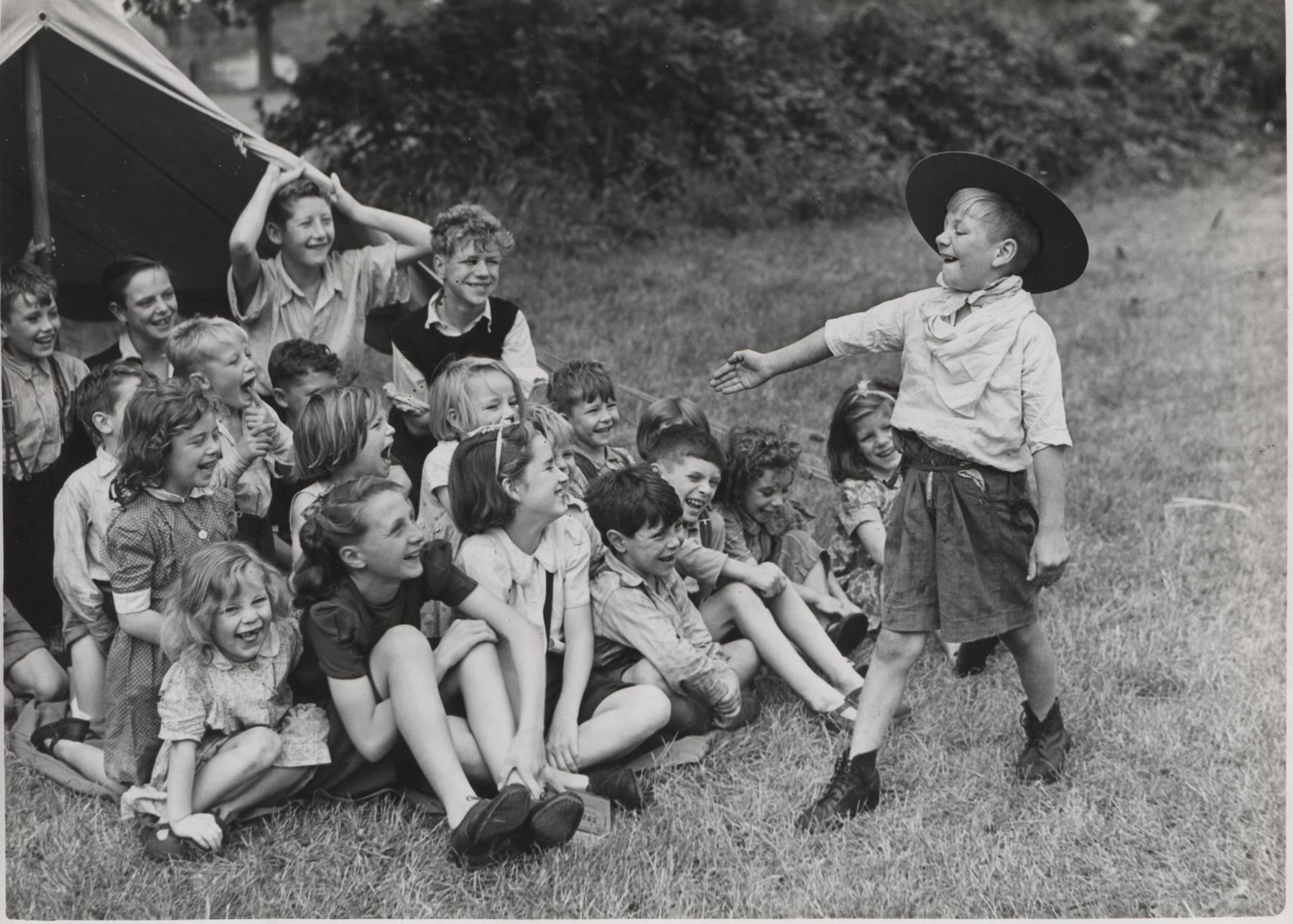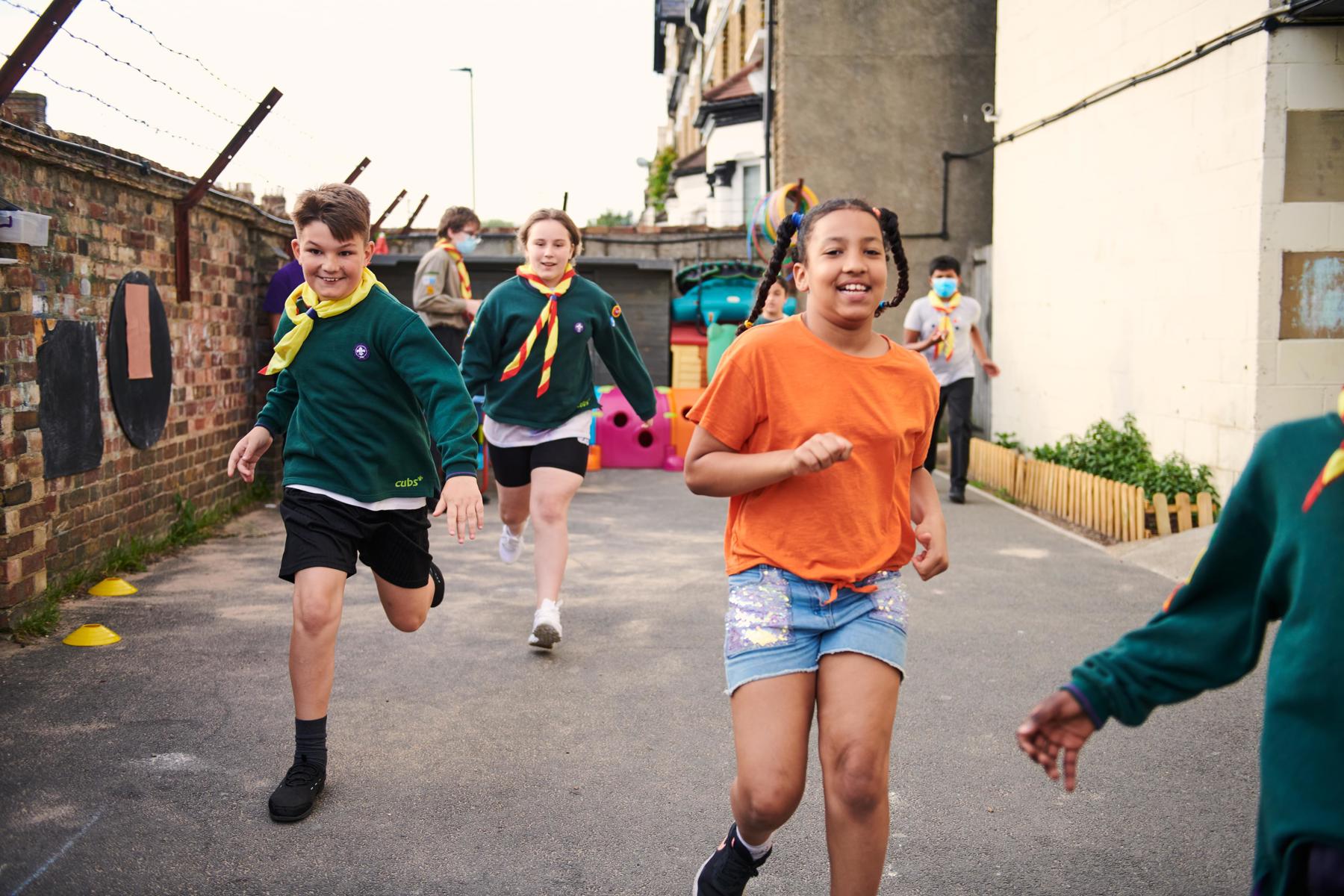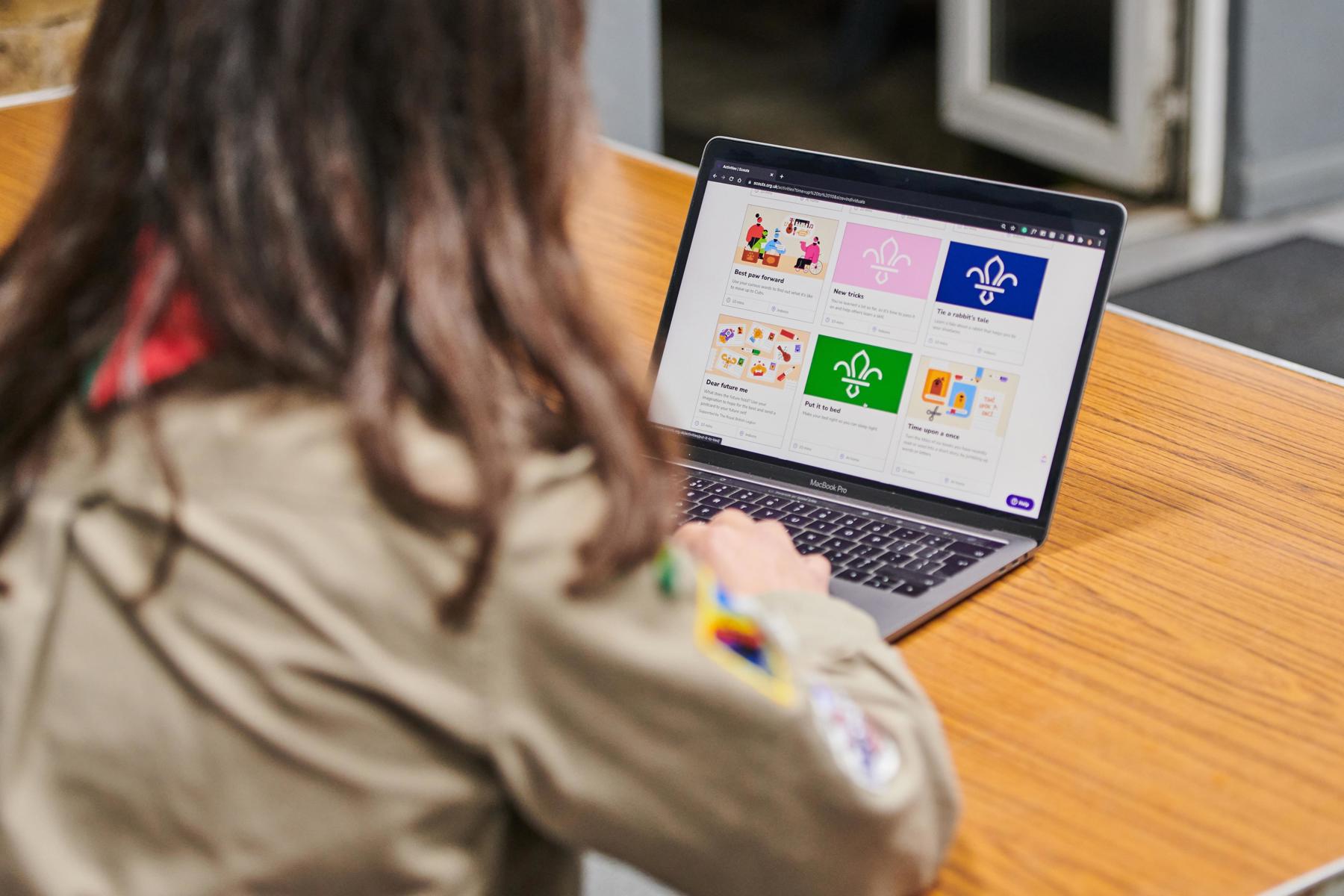Learning about and welcoming refugees in Scouts
As Scouts, we’ve a proud history of supporting people in crisis and responding to global disasters, with refugees and displaced children being no different.
A history of helping
Scouts in the UK and around the world have always supported displaced people and those in need. It’s in our nature to want to help. During the First World War, Scouts were asked to meet Belgian refugees at stations and provide them with help.
When refugees from the Spanish Civil War arrived in the UK, they were looked after on large camps. It was recognised that Scout volunteers would have the necessary skills to organise large groups of people, provide mass catering and introduce proper hygiene arrangements.
Did you know that we’re considered by the UN to be a core part of the world’s emergency response and community resilience? It all starts with a Scout Group, just like yours. You can make a difference.

Activities to learn about refugees, displaced children and international crises
Scouts believes that wherever they’re from and wherever they live, all young people deserve to grow up in safe and secure surroundings.
It’s been great to see Scout groups welcoming in refugees from the crises happening around the world, such as in Afghanistan, Yemen, Syria, Ukraine and Rohingya.
As part of our A Million Hands campaign, Scouts worked with Save the Children UK and British Red Cross on activities that are all about helping refugees and displaced children, as well as learning about in international crises.
From making welcome signs to learning a game from a country affected by conflict, our activities to learn about refugees and displaced children aim to help support Scouts to live by their Scout Promise to help other people.
Take a look at our guidance on International Crises, which offers activities and resource to help you respond to, and learn about crises happening overseas.

Tips on welcoming everyone into your group
As a group, you could work together to plan how you can make new starters in your group feel welcome. You should think about how you can spread the word that everyone is welcome at Scouts, and if there is anything you can do to remove any real or perceived barriers.
People from different countries may not be aware of Scouts. You could hold an open day to reach out to people and help them to understand more about what we do.
Remember to signpost people to another local group if you’re full.
You might want to use our ‘Welcome new arrivals’ activity to look at how to make your group as welcoming as it can be for refugees and displaced children.
You could also start by exploring various aspects of identity and how we all have lots in common with our ‘Someone like me’ activity.
It may be a suitable time to explore the global elements of the programme, such as the International activity badges and Community Impact Staged Badge.
Before the first meeting, you should start by having a sensitive chat with the young person and who they live with, or with the new adult volunteers. You might want to find out a little about them, as well as find out about how you can help them settle in. For example, you could find out if they’ve been involved with Scouts outside the UK.
The person, or the people who they live with, will be a valuable source of information about the young person's needs. They’ll be able to share anything that’s worked well at school or home to help them settle in.
As a group, you could learn some keywords and phrases from the new starters’ first language, if different to your own, and then you can use these to communicate with the whole group.
You could set up a donation system for spare uniform to give to new starters.
Remember, that for many people arriving in the UK, English or Welsh might not be their first language. Many may not know any English or Welsh at all when they first arrive. You might need to arrange for someone who can speak the same language to help translate.
You could choose to use a visual timetable or have visual cards available to help the young person interact with, participate in and understand the meeting. You may also want to translate some of your resources into their first language.
Have a think about how you give instructions, and remember to think about any language barriers to make sure that everyone understands how to stay safe when you’re risk assessing your activities.
As a group, you could learn some keywords and phrases from the new starters’ first language, if different to your own, and then you can use these to communicate with the whole group.
It’s important to remember that some young people and adults coming from countries in conflict may have experienced bereavement.
You can look at our guidance on supporting life issues and young people, which includes guidance around both bereavement and mental health.
Before the person starts, you should share what you’ve got coming up in your programme.
You could try to find out if there’s anything that might cause them distress after what they may have experienced, such as war or evacuation.
You should think about if there are any activities you need to tweak or hold off on for a while.
People might find certain activities difficult, such as loud noises, fire alarms, campfires or hiding games.
People may also find certain days of the year difficult too, such as Father’s Day and Mother’s Day.
If the young person has been involved in Scouts outside the UK, you could think about planning in some traditional Scout activities that they’re likely to be familiar with.
You could ask if there are any familiar games or activities they’d like to do or that they might know, such as from school. If you don’t get chance to chat about this, you could always do a bit of research yourself into activities and games from their home country.
People could ‘Share their favourite game’. This might give the new arrival opportunity to share and take part in a familiar game, or you could also find some games that are played in different countries too.
Why not plan a campfire and include some nonsense-word repeat-after-me campfire songs, that everyone can get involved with? Remember, you can create a fire-free indoor campfire with fairy lights.
If everyone is comfortable, you could explore the similarities and differences between Scouts in the UK and Scouts in the person’s home country. You might want to find out what they wear, their names for different groups and what their Scout Promise is.
You could start with you could Create origami Scout uniforms, exploring uniforms in different countries. You can also explore how we’re a global family in Scouting, with ‘World membership art attack’.
You could plan in some activities that are really visual and easy-to-follow. You could try out easy or simpler games from our activity finder, too.
Think of easy-to-understand ways to explain what usually happens when the group meets. You may want to have visual aids or cards.
Think about how you’ll help people understand how to do an activity or the rules of a game. You might also choose to demonstrate activities, giving people a chance to learn by watching others, or ask people to work in pairs to support each other.
Remember to think about any language barriers to make sure that everyone understands how to stay safe. This should be included when you’re risk assessing your activities.
If they feel comfortable, let the young person or adult introduce themselves in their own words when they join your group.
If they’d prefer, ask how they’d like you to introduce them.
If the young person or adult was in Scouts before in their home country, you might want to see if they’d like to tell people about it or find out more about what they did there. It’s important to make sure people only share if they’re happy and comfortable to, so follow their lead.
They may not want to share their experiences at all or take part in activities that remind them of home and that’s OK.
They might also love the chance to teach others their favourite game or all about their home country.
You might want to think about a buddy system for young people to offer a bit of extra support, especially if there’s someone who goes to the same school.
You could also ask if they want someone who they live with to stay for their first few meetings.
Make sure to encourage teamwork and co-operation to make sure everyone is involved with icebreaker and team building activities.
You could also plan activities and games to help people find common ground and shared interests.
For adult volunteers, you may wish to invite other volunteers to your session to meet them or introduce them to other volunteers in the area to help show them their Scouts local community.
Make sure to keep checking in with the individual to make sure that they’re happy and comfortable. For young people, you could talk to the person they live with about how they’re getting on and they’re finding or reacting to different activities too.
